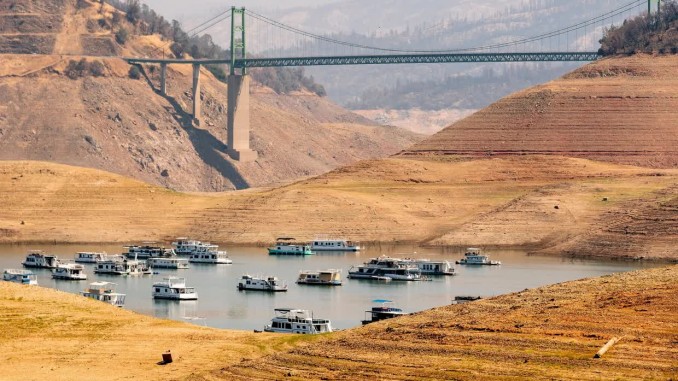
The megadrought (defined as a drought lasting twenty years or longer) plaguing the U.S. Southwest was determined to be the driest in the region in more than 1,200 years. The high temperatures and low precipitation levels of the past two summers solidified that record for the 22-year-old drought, according to a study in the journal Nature Climate Change.
While droughts in the region would occur naturally, the study found that human-caused climate change was responsible for about 19% of the exceptional severity of the drought in 2021 alone, and, since 2000, is responsible for about 42% of the soil moisture deficit. The researchers believe dry conditions will likely persist into 2023 and beyond because the drought is so severe that a single wet year will not be able to end it.
To address these conditions, federal officials have cut off water allotments to several states and have asked people who live in the region to voluntarily reduce their water use. However, the authors of the study say those actions only address short-term conditions and that conservation efforts will have to occur outside of times of drought to guarantee people have water. But even those actions of conservation do nothing to change the root cause of these climate disasters. We need to reduce carbon emissions and resource extraction that lead to these conditions in the first place.
Why should we be expected to live in such conditions while the rich will simply pay to get their water and resources from elsewhere until nothing is left? Until the burning of fossil fuels, resource extraction, and unsustainable practices are replaced with sustainable resources, the conditions we face and the insecurity of our basic necessities like water, food, and land will continue to worsen. However, while big corporations profit off of those practices, they will continue unless we organize to fight back.




